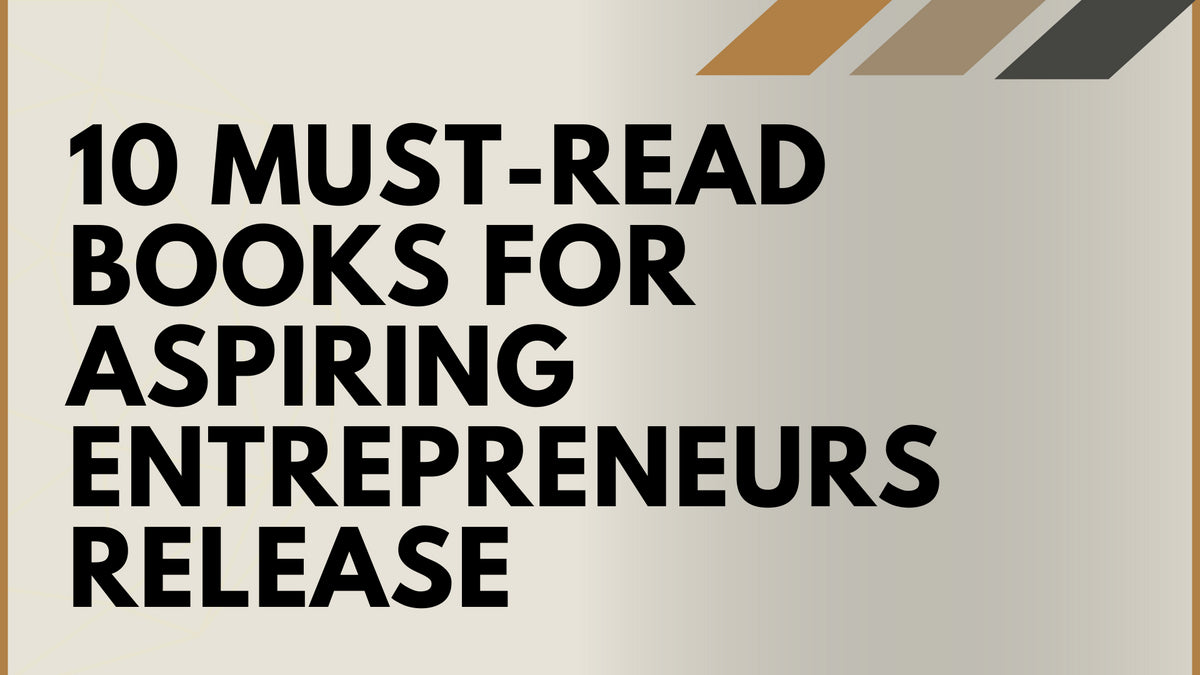Your Cart is Empty
Dethroning The King Book Summary: Hostile Takeover of Anheuser-Busch
Listen To This Article
InBev's Buyout of Budweiser
As the financial crisis hit in 2008, not many were thinking about what to do next. However, for Julie MacIntosh, her mind was running rampant about the King of Beers and the fate of Anheuser-Busch. This was because, in the same year, a Belgium company decided that they wanted to have the throne. This is when InBev presented a bold attempt to make the famous beer company their own.
In the book Dethroning the King: The Hostile Takeover of Anheuser-Busch, an American Icon, you will see exactly how Julie MacIntosh paints the picture of when inbev buys Anheuser Busch as a hostile takeover from a foreign company. When you think about it, it is amazing how a giant brewer such as Anheuser-Busch could be taken control of while owning more than half of the market for beer in the US. Especially when it continued to have a respectable reputation above all of its competitors, to only stumble and fall into a mind-boggling predicament.
For more on hostile takeovers read the biography of Carl Icahn or Barbarians At The Gate.
Learn To Grow A Company & Keep Control
- Mini-Biographies of founder Gussy, the Third, 4th and the battle for control between generations
- Discussion about getting to the light beer market or not. Losing market share to Miller their number one rival, which is also discussed in 22 immutable laws of marketing
- Talks about how inflation affects prices in 1970s
- Union battles and how AB paid white collar workers to keep the plant going during negotiations
- Third was either angry or suspicious. He was legendarily demanding of his ad agency, D'arcy. Which ended up getting fired after 79 years, because they bought a small amount of media for Miller once. Third didn’t trust them anymore.
- Frito’s from InBev’s public relations strategies to gain support from the public and confidence from the board. including launching a website with interviews with him talking about the offer and changes that will be made.
- When family owned companies sell or go public they put a two tier shareholding structure in place in the board to remain in control. Mars did this and remained solidly family owned. Also for publisher Dow Jones when it was sold to Rupert Murdock. The Busch family did not have this system though.
- Learn terms like standstill provision, non-disparagement covenant, stocking horse, and many others
Featured In This Review
Dethroning the King
$20.94
The story of how InBev did a hostile takeover of Anheuser Busch. Family scuffles, internal politics, wealth, control, intimidation and much more were in play to keep control of the American legend. In the end money was more important to the Busch family.
View On AmazonBook Summary of Dethroning The King
When it comes to the takeover, timing was everything as well as a little bit of help from family members, who had been in control of the company since day one. According to Julie MacIntosh, she was drawn to the story of Anheuser Busch because of the many stories circulating around the takeover and the type of relationship that August Busch III and August Busch IV had. Ted Turner’s biography also includes a multi-generational business, buyouts, and many more similarities.
When it came to their relationship, they both expressed how favoring family members within a company can have dire consequences when ownership is being passed down to younger generations. Ms. MacIntosh was even shocked over the amount of quarrels father and son had over personal property and other factors involving shareholders, which always involved some kind of argument or fight.
The book Dethroning the King offers a lot of interesting points and below are a few of the lessons you can learn from the takeover.
When a family brand has a strong connection with the company brand, conflicts may develop. Besides the connection between family name and brand name, the Anheuser-Busch reputation that was built was a strong one within the brewing industry. Because of their family members being in charge, this allowed them to instill a patriarch to lead the company and the industry as a whole. A lot of respect and fear was brought on by August, but he is human, and it was even more difficult for others to completely follow in his footsteps to keep the high standard he had in place. Another book that speaks to the positive side of a lot of family members working at a company is Small Giants.
As the years went by, the power perceived by others eventually weakened as the company expanded and included shareholders. It is also amusing to see that the amount of power had decreased so much and that only 4% had been in family control. With this low percentage, this is not much control when you think about it. However, because of the huge amount of influence they had, the perception from the public likely made them feel like they had more control than they did. For more on protecting ownership when dealing with fundraising read Venture Deals.
Want to buy a book review like this?
Click here to learn how to get your book reviewed!
The family had spent recklessly, which may have led to managing the company poorly. A lot of times, a company may end up spending more than they should in order to keep up an image of the company still doing great. This will easily make others show more respect and have the public think that all is well with the company. Flashy spending was something that Good To Great discussed as well.
Regardless, the amount of costs that were unnecessary increased and caused an increase in liabilities became even harder to manage financially as time went on. When it comes to the shareholders, they usually frown upon this because the company is not seen as making the best for shareholders. So when a takeover bid comes forward that looks attractive, you can bet that the offer may be considered, if not agreed upon. Plus, it is difficult to eliminate bad habits as soon as they become the norm. Another enormous takeover happened of Zappos by Amazon and there is more on that in the book Delivering Happiness.
When the business came into existence over a century ago, there was no clear plan for succession. This can spell trouble for any business whether it is family owned or not. Despite that, it was nice to see that the son was the successor and was primed before he was even ready. This also proved that a certain amount of credibility had to be built regardless of being bloodline. It was not enough to just have the same name. In fact, there is a difference between success and sustainability.
When a mistake is made during a takeover, the consequences could be costly. This is especially true when the takeover is considered hostile. It is important to have due diligence and be thorough in everything. It is also important to judge the value of those making the acquisition so that ownership can be secured. This proved to be an important part of the book as you can see a reaction in the book that is common after a bid is made, which is only seeing what you wish to be seeing. To read more about what makes a great business try the book Traction.
When you are a big company like Anheuser-Busch, there was a feeling as if they were too big to allow anything to happen. This means they allowed themselves to feel self-satisfied as they grew exponentially while its senses got dry through the amount of shares involved. This made them think that they were not vulnerable to any market changes due to it being publicly traded as the money will always be followed by the shareholder.
From a financial institute's point of view, they will not care who you are when they work with you. As long as they get their money, they will always be in happy spirits to give you what you want. This may not seem too obvious, but the obvious part is that the bank is in business to make money and nothing else. This is supported in a big way in the book Why Startups Fail.
Apart from having innovation stifled and groups being encouraged, having an authoritarian presence will never be able to sustain a business and never benefit it for future success. When a company is more hierarchical, they will always remain one step ahead of you. This will be due to a fresh amount of new ideas to come about. The style of leadership that August III instilled was disliked and this spilled into the company culture itself. However, the one advantage the leadership style did have was the ability to make decisions fast, even though the decision may not be seen as being done well.
If the Busch family had read The Innovator’s Dilemma or Lean Thinking, perhaps they could have prevented the loss of control of the company.
For more detail on the Busch family read Under the Influence: The Unauthorized Story of the Anheuser-Busch Dynasty.
About The Author Julie MacIntosh
Julie MacIntosh is a journalist focusing on the financial aspects of business and covered the takeover for the Financial Times as its main correspondent for acquisitions and Mergers. Besides this takeover, Julie also reported on the global banking system and how it nearly collapsed.
Before she made the Financial Times her career, she was a reporter and a Reuters correspondent for six years. She became a member of the Top 30 Business Journalists Under 30 club through NewsBios.
From an educational standpoint, Julie MacIntosh earned a bachelor's degree in journalism from Northwestern University. She then went on to earn her master's degree in journalism and a masters in business administration from Columbia University. Julie makes an appearance on MSNBC and CNBC on a regular basis.
Want to buy a book review like this?
Click here to learn how to get your book reviewed!
Leave a comment
Comments will be approved before showing up.
Also in Books

The Best Books for Google Analytics 4 (GA4) Training
Unlock the secrets of Google Analytics 4 with our curated list of the best GA4 training books for 2023! Dive deep into actionable insights, master advanced techniques, and lead the digital analytics revolution. Don't get left behind; discover the ultimate resources to dominate GA4. Click now to elevate your skills!
Read More
10 Must-Read Books for Aspiring Entrepreneurs
Do you dream of starting your own business? If so, you need to read this article! We've compiled a list of 10 must-read books for aspiring entrepreneurs. These books will provide you with the knowledge and inspiration you need to turn your dream into a reality. Click here to read the article and learn more!
Read More
Top 15 Books on Personal Finance
Are you looking for a safe and informative place to learn about personal finance? If so, you've come to the right place! This article discusses the top 15 personal finance books on the market, all of which are sure to help you improve your financial situation without any explicit sexual descriptions or that is sexually suggestive in nature or is primarily intended to cause arousal.
Read More